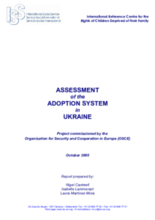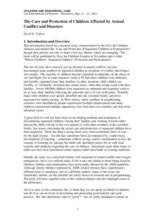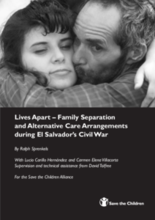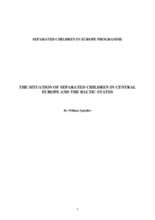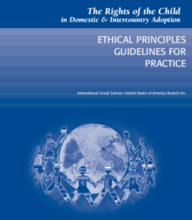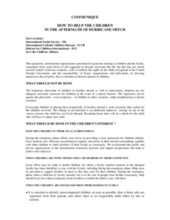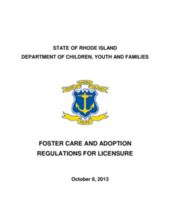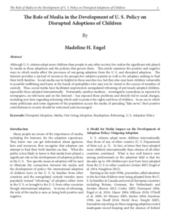Displaying 611 - 620 of 622
Assessment of the care system, domestic adoption, and international adoption in Ukraine with a summary of key findings and recommendations.
Overview of a research study which provides guidelines for care of separated children in large-scale emergencies, focusing on the negative impact of residential care, extended family care, spontaneous and agency fostering, adoption, and alternative placements for adolescents.
This report details the situation of disappearing children during the El Salvadorian civil war. It describes the process of tracing and reunifying children with their families, as well as alternative care arrangements for separated children.
This report reviews childcare policy for separated children in the Central Europe and the Balkan States. It emphasizes the need to establish training, resources and effective procedures in order to meet the standards outlined in the Statement of Good Practice. Data from Bulgaria, Croatia, the Czech Republic, Estonia, Hungary, Latvia, Lithuania, Poland, Romania, Slovakia and Slovenia is presented.
The purpose of this report is to document the levels of child abandonment and de-institutionalization as an indicator of the quality of social transformation during the transition decade (1990-2000).
A set of ethical principles and practice guidelines to protect the welfare of children in domestic and intercountry adoptions.
Guidance on the importance of preventing family separation and ensuring reintegration with families, communities or country of origin.
These regulations were developed in the United States (in the state of Rhode Island) to assess all individuals who care for children away from their legal parents. It may contain useful information for organizations and countries that are developing their own regulations for foster carers.
The Hague Convention puts forward a set of internationally recognized principles to guide states in the area of intercountry adoption.
This article examines the positive and negative ways in which media affect the processes of out-going adoption from the U. S. and disrupted adoption.

